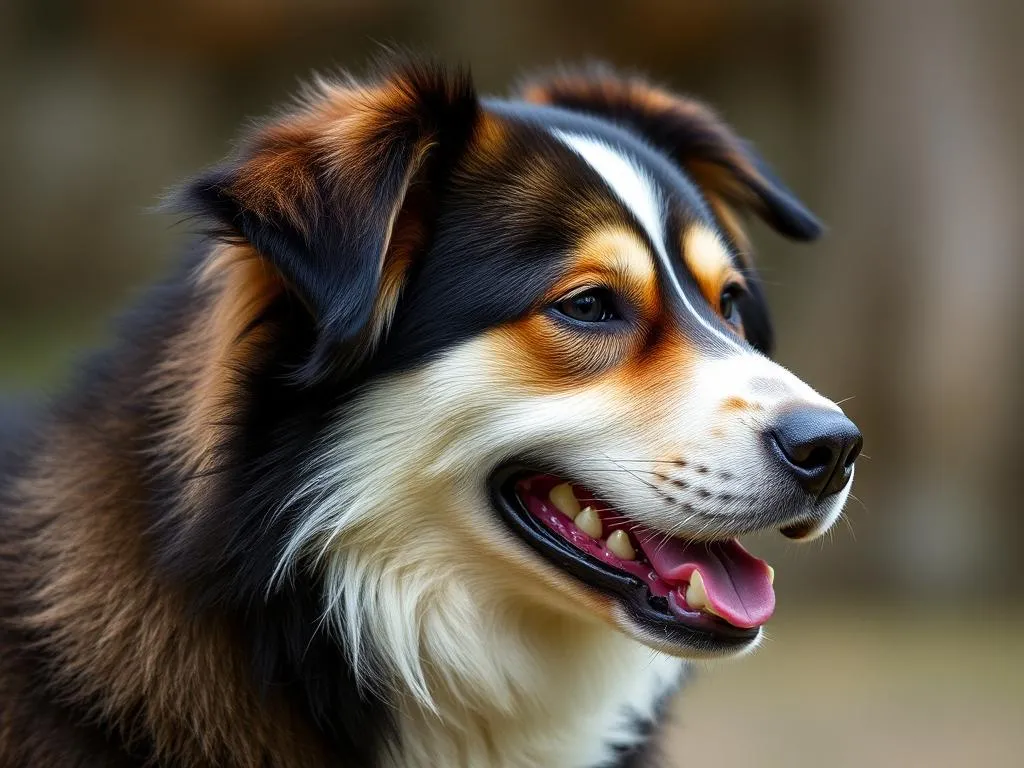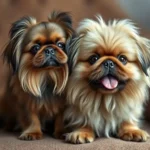
Introduction
Dog breeds play a significant role in human history, companionship, and culture. Among the vast array of breeds, Japanese dog breeds hold a special place due to their unique characteristics and deep-rooted history in Japanese culture. These breeds not only reflect the rich traditions of Japan but also possess distinctive traits that make them exceptional companions. This article aims to provide an informative overview of popular Japanese dog breeds, including their characteristics, care requirements, and historical significance.
Historical Background of Japanese Dog Breeds
Origins of Japanese Dog Breeds
The origins of Japanese dog breeds can be traced back thousands of years. Various breeds have developed in Japan due to the country’s unique geographic and cultural landscape. The mountainous regions and islands created isolated environments, leading to the evolution of distinct breeds adapted to local conditions. The Japanese Akita, for instance, descends from ancient hunting dogs that were used for tracking large game in the rugged terrain.
The historical context of these breeds is equally fascinating. Many were bred for specific purposes, such as hunting, guarding, or companionship. The integration of these dogs into Japanese society reflects the deep bond between humans and canines throughout history.
Traditional Uses of Japanese Dog Breeds
Japanese dog breeds have traditionally served various roles in society. Some were bred for hunting, such as the Kishu Ken, which was used to hunt boar and deer, while others, like the Shiba Inu, served as companions and watchdogs. Their skills and loyalty made them invaluable to Japanese families and communities.
In addition to their practical uses, these breeds also play a significant role in Japanese folklore and art, symbolizing loyalty and courage. For instance, the story of Hachiko, an Akita Inu known for his unwavering loyalty, has become an iconic representation of the bond between dogs and their owners.
Popular Japanese Dog Breeds
Akita Inu
The Akita Inu is one of the most recognized Japanese dog breeds globally. Known for its large size and powerful build, the Akita features a thick double coat that can come in various colors, including white, brindle, and pinto.
Temperament: The Akita is known for its loyalty and protective nature. While they are affectionate with their families, they can be reserved with strangers, making them excellent watchdogs.
Care Requirements: Akitas require regular exercise and mental stimulation to keep them healthy and happy. They thrive in environments where they can explore and play, but potential owners should be aware of their strong-willed nature and need for consistent training.
Health Considerations: Common health issues in Akitas include hip dysplasia and autoimmune disorders. Regular veterinary check-ups can help monitor their health and address any concerns early on.
Shiba Inu
The Shiba Inu is a small to medium-sized breed with a fox-like appearance. This breed is one of Japan’s oldest and has a spirited personality that many dog lovers find appealing.
Overview: Shiba Inus are known for their alertness and confidence. They possess a bold demeanor, making them excellent companions for active families.
Behavioral Traits: They are known to be independent and sometimes stubborn, which can make training a challenge. However, with patience and consistency, Shiba Inus can be well-behaved and obedient.
Grooming Needs: Shiba Inus have a dense double coat that requires regular brushing to manage shedding. They are relatively clean dogs and often groom themselves like cats.
Kishu Ken
The Kishu Ken is a lesser-known Japanese dog breed but is cherished for its hunting prowess and loyalty. This medium-sized breed is known for its agility and striking appearance.
Unique Features: The Kishu Ken has a strong, muscular build and a short coat that can vary in color. They are known for their keen sense of smell and excellent tracking abilities.
Energy Levels: Kishu Kens are high-energy dogs that require ample exercise. They are best suited for active families or individuals who can provide them with plenty of physical and mental stimulation.
Health Issues: While generally healthy, Kishu Kens can be prone to certain conditions such as hip dysplasia. Regular veterinary check-ups are essential for early detection of potential health issues.
Shikoku
The Shikoku is another medium-sized breed that combines elegance with a spirited personality. Known for its loyalty and intelligence, the Shikoku is a versatile dog that can excel in various roles.
Description and Origin: The Shikoku is considered a national treasure in Japan. With a curled tail and a double coat, it is both beautiful and functional, originally bred for hunting.
Adaptability: Shikokus are adaptable dogs that can thrive in different environments, whether urban or rural. They form strong bonds with their families and are known for their affectionate nature.
Maintenance Needs: Regular exercise is crucial for the Shikoku, along with appropriate grooming to manage their thick coat. A well-balanced diet is also essential to maintain their health and energy levels.
Japanese Chin
The Japanese Chin is a toy breed known for its elegant appearance and charming personality. This small dog is often seen as a companion, making it a favorite among families and individuals alike.
Size and Physical Traits: Japanese Chins are small, typically weighing between 4 to 9 pounds. They have long, flowing coats that require regular grooming to prevent tangles and mats.
Personality: They are affectionate and playful, often forming strong attachments to their owners. Their gentle nature makes them excellent companions for children and elderly alike.
Care and Grooming: Regular grooming is essential to keep their coats healthy. They also require moderate exercise, such as short walks or playtime indoors.
Traits of Japanese Dog Breeds
Common Physical Characteristics
Japanese dog breeds exhibit a variety of physical traits. Their sizes range from small, like the Japanese Chin, to larger breeds like the Akita Inu. Coat types also vary widely, with some breeds featuring long, flowing coats while others have short, dense fur. Common colors include brindle, white, and various shades of red.
Temperament and Behavior
Generally, Japanese dog breeds are known for their loyalty, intelligence, and independence. While many breeds, such as the Akita and Shiba Inu, can be aloof with strangers, they are incredibly affectionate with their families. Some breeds, like the Kishu Ken, may require more socialization to prevent shyness.
Intelligence and Trainability
Japanese breeds are typically intelligent and capable of learning commands quickly. However, their independent nature may lead to challenges in training. Consistent, positive reinforcement methods work best. For example, Shiba Inus may respond well to rewards for good behavior, while Akitas may require a firm but gentle approach due to their strong-willed personality.
Caring for Japanese Dog Breeds
Nutrition Requirements
The nutritional needs of Japanese dog breeds can vary based on their size and activity level. High-quality dog food that meets their specific dietary requirements is essential. It’s crucial to be mindful of common dietary restrictions, as some breeds may be prone to allergies. Regular vet visits can help ensure that your dog’s diet is balanced and appropriate.
Exercise and Activity Needs
Exercise is vital for maintaining the health of Japanese dog breeds. Larger breeds like the Akita require longer walks and play sessions, while smaller breeds like the Japanese Chin may be satisfied with shorter bursts of activity. Daily mental stimulation, such as puzzle toys or training games, is also beneficial.
Grooming and Maintenance
Grooming needs vary significantly among Japanese dog breeds. For instance, Shiba Inus require regular brushing due to their shedding, while Japanese Chins need frequent grooming to maintain their long coats. Establishing a grooming routine early on can help acclimate your dog to the process and reduce stress.
Health Considerations
Common Health Issues
Each breed has specific health considerations. Akitas are prone to hip dysplasia and autoimmune disorders, while Shiba Inus can suffer from patellar luxation and allergies. Regular veterinary care, including vaccinations and wellness checks, is essential to catch any potential health problems early.
Lifespan Expectations
The average lifespan of Japanese dog breeds varies, with smaller breeds like the Japanese Chin living longer—typically 12 to 15 years—while larger breeds like the Akita have a shorter lifespan, averaging around 10 to 15 years. Factors influencing longevity include genetics, diet, exercise, and regular veterinary care.
Adoption and Ownership
Finding a Japanese Dog Breed
When considering adding a Japanese dog breed to your family, it’s essential to research reputable breeders or rescue organizations. Responsible breeders prioritize the health and temperament of their dogs, while rescues can provide loving homes for dogs in need.
Preparing for a Japanese Dog
Preparing for a new dog involves gathering essential supplies such as food and water bowls, a comfortable bed, and toys. Understanding the breed’s specific needs—whether it be exercise, grooming, or dietary restrictions—will help ensure a smooth transition into your home.
Conclusion
Japanese dog breeds hold a unique charm and significance, making them excellent companions for various lifestyles. Their rich history and distinct characteristics highlight the cultural importance of these breeds in Japan. Whether you are drawn to the loyalty of the Akita Inu, the spirited nature of the Shiba Inu, or the elegance of the Japanese Chin, each breed offers something special. Embracing responsible ownership and understanding the needs of these breeds can lead to a fulfilling and joyful relationship.
Call to Action
We invite you to share your experiences with Japanese dog breeds in the comments below. Let’s celebrate the beauty and uniqueness of these incredible dogs together!









